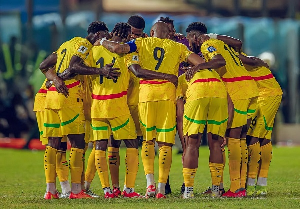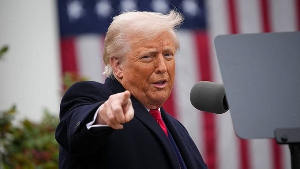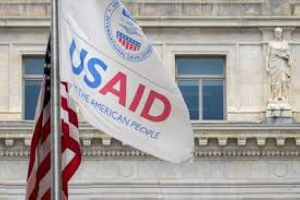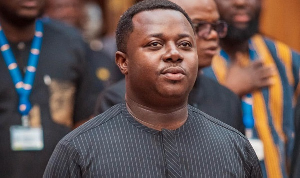“He should come over here to ghana and see what we have to live with,” was my mentor’s response to Dr. Anthony Fauci’s comments on the growing problem of “anti-science bias” in the US during the “Learning Curve” podcast last week.
I have my battles, and my mentor has his, but sometimes they converge.
Whether you are dealing with the stark illiterate or the so-called educated middle class– upwardly mobile, aspirational class; both most often have strange values and are often “impervious to reason”, to borrow my mentor’s term.
There are at least three reasons for this.
First, illiteracy is so predominant (upwards of 85 per cent) such that you either conform or be consumed.
Second, as a corollary to the first point, most of the aspirational class are unable to connect the rubrics of scientific methods and literature to everyday issues.
One of my grandmothers would always jab my uncles thus: “Wo krakye ay? nyinaa me’tam ano”, Fante, suggesting that “All your scholarship is inseparably linked to the draw strings of my waistcloth.”
This jab or if you like straight hook ended all debates about whether she, an illiterate – and you dare not call her illiterate – had anything to learn from the schooled.
Full disclosure; I belong in this category of the aspirational class. I still have that same family battle with my mother – it will likely never end – till death do us part.
And third, due to our prevalent culture of impunity, pervasive bribery and corruption, those who bribe their way often get immediate relief from formal or informal legal sanctions.
They then proceed to flaunt their ill gotten gains, and are often used as examples of “successful people”.
My mentor calls those who practice this subculture, “A wise man’s idiot or an idiot’s wise man”.
The above of course include those who weaponize their positions and titles to secure results which impede long term progress by thwarting fundamental principles; examples include board chairs, CEOs.
Jonathan Garlick, a stem cell scientist writing on 27 December 2014 about “science literacy” on theconversation.com. explained:
“Increasingly we must grapple with highly-charged and politicized science-based issues ranging from infectious diseases and human cloning to reproductive choices and climate change.
Yet many – perhaps even the majority – …..aren’t sufficiently scientifically literate to make sense of these complicated issues…….
Without a solid understanding of the underlying science and its implications for our daily lives, we can neither respond intelligently on a personal level nor hold our public officials accountable for sound policy decisions.”
Our battles in ghana are no less tough.
They include getting our peers to understand and accept basic didactic information; having meaningful conversations outside our traditional family settings; and dominating the public space/discourse with our insightful conversations.
In ghana, we have not developed a solid literate/scholarship culture, whereby public lectures are held regularly, with robust critiques and skepticism being appreciated.
And certainly, the ubiquitous “shows” hosted by the “astute” journalists on air almost always pervert rational analysis and the minimum of decorum.
Even at the college level, our interfaculty lectures are a luxury; often stifling affairs where overt non-practitioners mouth multiple platitudes.
A few lecturers including Professor Ransford Gyampo of University of Ghana and Nana Professor Darkwa of Ghana Technology University College have been writing regularly in the media.
However, our media appears to have very limited editorial capacity to moderate the articles.
The empirical evidence does not support the assumption that once professors are packed onto the boards of directors of the state owned media houses, they can have a moderating influence.
Specific examples abound including state-owned media.
Moving forward, we at writersghana.com hereby propose that independent scholars or independent and fair minded individuals with core competencies constitute the editorial advisory boards of Ghana’s media houses and they must have at least three attributes.
First, they have nothing to lose financially when an article/story does not get published; second, they have no personal or political axe to grind; and third the moral imperative is their time-tested avocation.
All told there must be a determined effort to promote verbal reasoning, alongside an understanding of society, the environment and culture, as a roadmap to progress and development in our nation.
This will give fuller meaning to my mentor’s remarks about the Aufklärung during my first graduation ceremony at Sakabo University when he emphasized: “The scientific method is a way of life”.
Feedback: ato@writersghana.com; www.writersghana.com; LinkedIn, Isaac Ato Mensah; Instagram, @atomenswriters; Twitter, @Atomens; Facebook, Writers and Shakespeares Ghana; Telegram, Isaac Ato Mensah; Quora, Isaac Ato Mensah; WhatsApp, (+233) 020 022 0353.
Writers and Shakespeares Ghana Limited exist to be a moral and intellectual guide to the best practice of PR and integrated communications around the world, beginning with Ghana.
Opinions of Monday, 22 June 2020
Columnist: Isaac Ato Mensah



![Prof Adei [L], Ayikoi Otoo, Baffour Awuah and Janet Nabla Prof Adei [L], Ayikoi Otoo, Baffour Awuah and Janet Nabla](https://cdn.ghanaweb.com/imagelib/pics/483/48355074.295.jpg)











